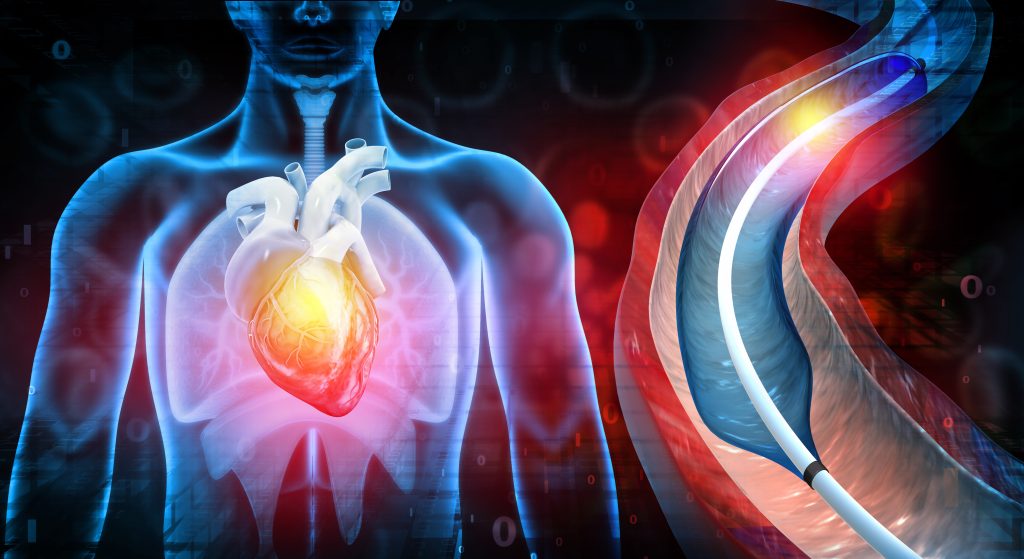Everyday changes Dr Garcia suggests for better cardiovascular health
Everyday changes Dr Garcia suggests for better cardiovascular health
Blog Article
Recognizing the Relevance of Cardiology in Modern Medical Care Providers
Cardiology plays a crucial role in contemporary medical care, especially as heart disease remains to be the leading source of mortality worldwide. Advancements in diagnostics and treatment have actually transformed person care, making it possible for earlier treatments and improved outcomes. The shift towards precautionary cardiology equips people to manage their wellness proactively. As modern technology continues to progress, the integration of cutting-edge options might even more redefine cardiology's influence on public health, prompting a better exam of emerging fads and their ramifications.
The Frequency of Heart Condition and Its Effect On Public Health And Wellness
Although heart problem continues to be the leading cause of fatality internationally, its effect prolongs much past individual clients to affect public wellness systems and economic situations. The high occurrence of heart problem positions a substantial strain on medical care resources, requiring enhanced financing for therapy, rehabilitation, and avoidance programs. Public health and wellness campaigns have to resolve threat elements such as excessive weight, smoking cigarettes, and less active way of lives, which add substantially to the rising incidence of heart conditions.Moreover, the financial burden connected with heart disease is enormous, encompassing not only straight clinical costs however also indirect expenses associated with shed performance and premature mortality. Areas deal with challenges in managing these costs, usually causing disparities in health care accessibility and outcomes. As the populace ages and lifestyle-related threats proceed to intensify, the urgency for effective cardiology treatments comes to be paramount. Consequently, attending to heart disease is not only a matter of specific health however likewise a crucial public health and wellness priority.
Developments in Heart Diagnostics and Imaging Techniques
Current advancements in cardiac diagnostics and imaging techniques have transformed the field of cardiology, improving the capability to identify and keep an eye on cardiovascular disease. Techniques such as cardiac MRI, CT angiography, and echocardiography have actually ended up being significantly innovative, providing in-depth pictures of cardiac frameworks and features. These techniques enable the early identification of conditions like coronary artery illness, heart failure, and valvular disorders.Moreover, improvements in non-invasive diagnostics, such as wearable technology and remote surveillance gadgets, have actually equipped individuals and doctor. These tools assist in real-time tracking of heart rhythms and various other necessary indicators, causing timely treatments. Furthermore, expert system is being incorporated into imaging evaluation, enhancing accuracy and efficiency in medical diagnosis.
Technologies in Therapy Options for Heart Issues
Recent developments in cardiology have caused significant technologies in therapy alternatives for heart disease. These include advanced medical techniques that boost step-by-step results and emerging medicines that provide brand-new avenues for therapy. As the field advances, these advancements play an important role in enhancing person treatment and end results.
Advanced Surgical Techniques
Advancements in medical strategies have transformed the landscape of cardiology, offering new expect patients with heart disease. Minimally intrusive treatments, such as catheter-based interventions, have substantially reduced recovery times and medical facility remains. Techniques like robotic-assisted surgical procedure boost precision, enabling cosmetic surgeons to navigate intricate anatomical structures with better precision. Furthermore, innovations in imaging innovation facilitate real-time visualization during procedures, enhancing outcomes. Transcatheter aortic shutoff substitute (TAVR) exemplifies a breakthrough in dealing with aortic stenosis, allowing shutoff replacement without open-heart surgery. In addition, hybrid strategies that incorporate catheter-based and surgical methods supply customized remedies for different heart concerns. These sophisticated surgical techniques not just boost client safety but likewise broaden treatment alternatives, underscoring the vital function of development in contemporary cardiology techniques.
Emerging Drugs and Treatments
As the landscape of cardiology continues to develop, arising medications and therapies play a crucial function in boosting therapy choices for heart problems. Developments such as novel anticoagulants and advanced lipid-lowering representatives have transformed the monitoring of cardio illness, considerably lowering patient morbidity and mortality. Additionally, the development of genetics treatments and regenerative medication uses promising opportunities for dealing with problems formerly considered permanent. Clinical trials are consistently revealing the efficacy of these treatments, pushing the boundaries of traditional treatments. Furthermore, the combination of digital health modern technologies facilitates individualized medication, permitting tailored therapy plans based upon hereditary and way of living factors. Collectively, these advancements emphasize the vibrant nature of cardiology, boosting patient outcomes and redefining standards of treatment in modern medical care.
The Function of Preventive Cardiology in Person Care
Preventative cardiology plays a crucial role in individual treatment by concentrating on the identification of danger factors that add to heart problem. Via way of life adjustment techniques and early discovery methods, health care carriers can effectively minimize the occurrence of cardio events - Cardiology Jupiter. This positive method not only improves person end results however also advertises lasting health and wellness
Danger Factor Identification
While heart diseases remain a leading cause of morbidity and mortality worldwide, efficient danger factor recognition acts as a keystone of preventative cardiology. Identifying risk elements such as hypertension, hyperlipidemia, family, and diabetes background is essential for very early treatment. Medical care professionals make use of numerous evaluating methods to assess these elements, permitting for tailored precautionary procedures. Additionally, understanding a client's way of life selections, such as smoking and physical lack of exercise, further informs risk evaluations. This complete analysis makes it possible for clinicians to create individualized treatment plans focused on mitigating dangers. By prioritizing danger element identification, medical care systems can enhance person results and lower the overall worry of heart diseases, ultimately adding to improved public health and wellness approaches and resource allocation.
Way Of Living Alteration Strategies
A multitude of studies highlights the important function of lifestyle adjustment approaches in lowering heart disease danger. These strategies include dietary adjustments, boosted exercise, smoking cigarettes cessation, and weight administration. By embracing a heart-healthy diet regimen rich in fruits, veggies, whole grains, and lean proteins, individuals can reduce cholesterol levels and blood pressure. Regular exercise reinforces the heart and enhances overall cardio wellness. Additionally, quitting smoking read review significantly lowers the threat of heart problem and boosts healing rates for those with status quo. Weight monitoring further contributes to cardio health and wellness by reducing other threat elements such as diabetic issues and high blood pressure. Executing these lifestyle alters not only promotes private health however also acts as a foundation of precautionary cardiology in client care.
Early Detection Methods
Way of life modifications greatly add to reducing cardiovascular illness dangers, but they are most reliable when coupled with early detection techniques. Preventative cardiology highlights the importance of determining possible heart concerns before they intensify into major problems. Techniques such as high blood pressure monitoring, cholesterol testing, and progressed imaging innovations like echocardiograms play vital roles in examining cardiovascular wellness. Biomarkers and hereditary testing additionally enhance the accuracy of very early discovery, permitting customized preventive techniques. Regular cardiac risk assessments equip doctor to step in proactively, possibly avoiding heart attacks and strokes (Dr Garcia). By incorporating these very early detection approaches into routine care, clients can take advantage of prompt lifestyle treatments and targeted therapies, eventually enhancing results and boosting quality of life
Integrating Modern Technology Into Cardiology Practices
As improvements in innovation remain to reshape various areas, the integration of ingenious devices and systems right into cardiology methods has ended up being important for boosting patient care and results. Telemedicine systems allow cardiologists to keep track of individuals remotely, improving access to care while reducing the worry on health care facilities. Wearable gadgets, such as smartwatches, enable continual heart price monitoring, alerting both physicians and patients to prospective concerns in real-time. In addition, additional resources expert system (AI) is being made use of to assess large quantities of heart data, aiding in early diagnosis and customized treatment plans. Advanced imaging methods, including 3D echocardiography, enhance visualization of heart structures, bring about much more precise interventions. Electronic health and wellness documents (EHRs) streamline individual information monitoring, guaranteeing that cardiologists have instant accessibility to crucial data. With each other, these technological innovations are changing cardiology, advertising positive management and improved health and wellness results for clients with cardiovascular conditions.
The Value of Individual Education And Learning and Engagement
Client education and involvement play a critical role in the monitoring of cardio wellness. By gearing up clients with expertise concerning their conditions, treatment alternatives, and way of life changes, healthcare companies encourage individuals to take an energetic function in their care. This proactive strategy can bring about improved adherence to recommended medications, dietary changes, and exercise routines, eventually decreasing the risk of complications.Engagement additionally promotes a solid patient-provider partnership, motivating open communication and trust. When patients feel educated and involved, they are much more most likely to voice concerns and ask concerns, which can cause far better medical end results. Additionally, instructional sources, such as workshops or electronic platforms, can boost understanding and promote self-management strategies. On the whole, prioritizing individual education and learning and involvement is important for enhancing cardiovascular health and wellness, boosting lifestyle, and lowering medical care expenses associated with cardio illness.
Future Fads in Cardiology and Their Possible Effect

Often Asked Questions
What Way Of Living Adjustments Can Minimize Heart Condition Risk?
The existing concern addresses way of living changes that can greatly lower heart illness risk. Dr Garcia. Taking on a well balanced diet regimen, involving in routine physical task, maintaining a healthy and balanced weight, managing anxiety, and avoiding cigarette can significantly enhance cardiovascular wellness
Exactly How Can I Acknowledge Early Signs of Heart Issues?
Identifying very early indicators of heart issues involves surveillance signs and symptoms such as breast pain, lack of breath, tiredness, and uneven heart beat. Prompt awareness of these signs can trigger needed medical examination and intervention for much better outcomes.
What Are the Distinctions In Between Cardiologists and Cardiac Surgeons?
The distinctions in between cardiologists and heart specialists depend on their functions; cardiologists mainly detect and handle heart problems via non-invasive approaches, while cardiac doctors carry out medical procedures to fix structural heart concerns. Each plays a crucial, distinct role.

Just how Often Should I Obtain My Heart Wellness Checked?
The frequency of heart health checks varies based upon private threat factors. Normally, grownups need to go through analyses each to 2 years, while those with existing conditions may call for even more frequent evaluations as encouraged by health care professionals.
What Duty Does Genetics Play in Cardiovascular Disease Danger?
Genes significantly affects heart illness threat, with familial patterns suggesting acquired conditions. Details genes can predispose people to hypertension, cholesterol concerns, and various other cardio problems, highlighting the significance of genetic screening in evaluating heart health and wellness. Heart condition stays the leading cause of fatality globally, its effect prolongs far beyond private people to affect public health and wellness systems and economies. Public wellness initiatives should attend to risk variables such as obesity, smoking cigarettes, and sedentary way of livings, which add substantially to the increasing occurrence of heart conditions.Moreover, the economic problem linked with heart disease is enormous, incorporating not only direct clinical prices but additionally indirect costs connected to lost efficiency and premature mortality. Preventive cardiology plays a vital function in client care by concentrating on the identification of danger elements that add to heart condition. Fabricated knowledge (AI) and equipment knowing are enhancing diagnostics and client monitoring, enabling early discovery of heart illness. The differences between cardiologists and cardiac specialists lie in their duties; cardiologists mostly identify and visit the website take care of heart problems through non-invasive methods, while cardiac specialists carry out medical procedures to fix structural heart concerns.
Report this page